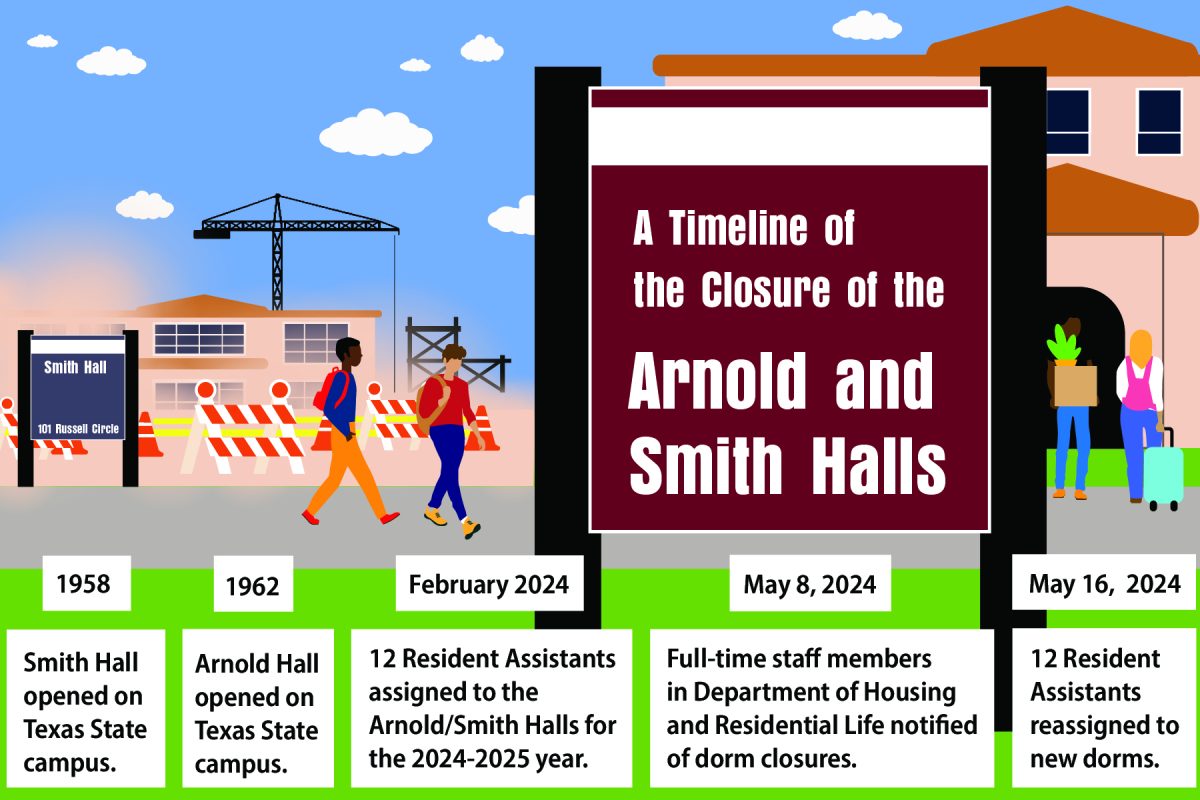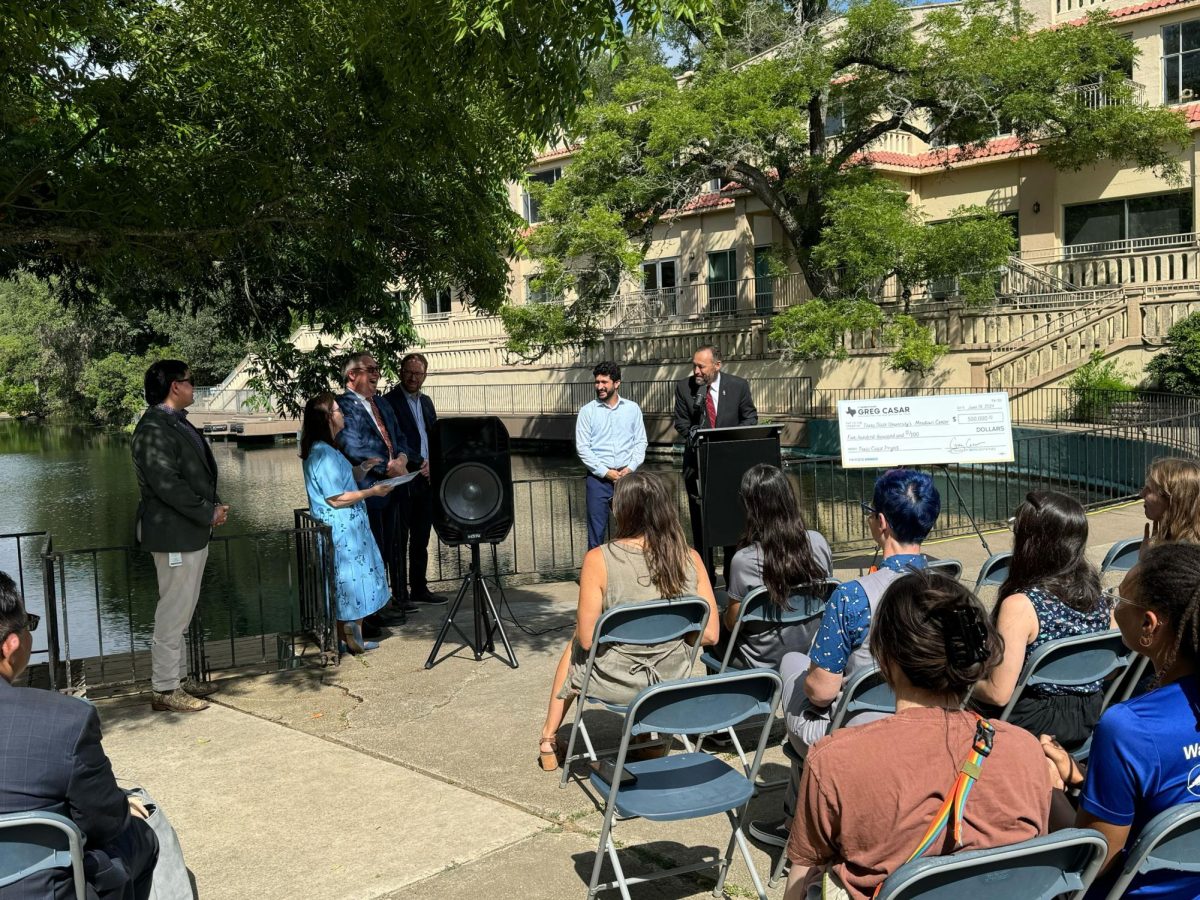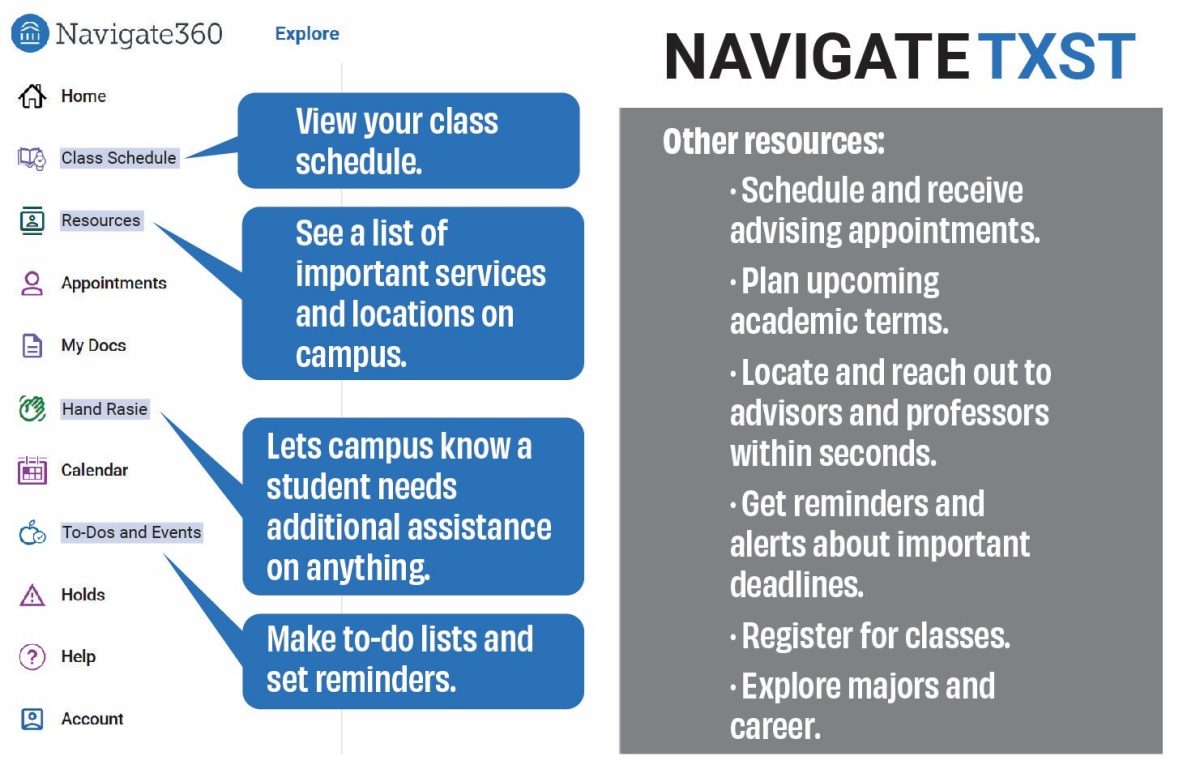This fall, more freshmen are walking through The Quad on their way to dining halls than ever before as campus welcomes the largest freshman class of 7,573 new students. With this inflated group, it has put immense pressure on the dining halls to serve food timely.
While the requirement for freshmen to live on campus continues, a crucial aspect of their daily lives is dining on campus, highlighting adjustments that need to be made.
As inflation continues to rise across the country, corporations and businesses have been increasing the prices of their products. This sentiment is no different in buying food for Texas State according to Chin-Hong Chua, resident district manager of Chartwells at Texas State.
“Almost every week food and paper prices increases,” Chua said. “With a lot of shortages, this can cause us to have to settle for different food. Sometimes we are sent chicken tenders instead of chicken breast or foam plates instead of paper and despite the fact that we don’t normally use these products, we have to adapt to these changes.”
According to Chua, the budget for the amount of food bought increases by 20% year-to-year, but as inflation has increased by 8.2% this past September, that 20% increase might start becoming more restrictive for the amount of food bought and its quality.
“We have to consider inflation when buying food,” Chua said. “We have to account for how the food will be consumed and buy the amount that causes the least waste.”
These are thoughts that were addressed differently not long ago due to COVID-19. Dining halls have not been as busy as they currently are for the past two years.
Currently, freshmen living on campus are required to purchase a meal plan. On campus, there are two traditional dining halls: Commons and Harris; and various dining centers: LBJ Student Center, Jones Dining Center and The Den. These dining centers are spread out on campus to allow easy access for students.
Some students feel the quality of these dining halls doesn’t match up to the number of students.
“They run out of the popular food very quickly and then you have to sit and wait for a very long time,” Sydney Polak, a secondary theatre education freshman, said.
This can become an issue, especially during school days when students only have a set amount of time to eat before class. Students with dietary restrictions may have to get food that’s made to order, forcing them to have to wait longer times.
Even students without dietary restrictions can experience longer wait times based on how busy the dining halls are, which is time they may not have.
“Sometimes they can’t keep up right away due to a large influx,” Chua said. “Certain items will take longer to cook, so one station may have to wait a bit longer.”
Besides the lack of certain foods, the dining halls cannot seem to keep up with the supplies necessary for dining.
“When it comes to things like forks, spoons and knives, they never had enough,” Polak said. “They were always running out or I had to bring my own.
Both Commons and Harris Dining Halls have also recently switched to using plastic plates and plasticware over ceramic dishes and silverware which has created some concern among students like Greg Ordonez, a communication studies junior.
“Considering the fact they’ve been using plastic plates and plastic silverware, that also brings up the sustainability issue,” Ordonez said. “When you make it into a mass scale, then that causes a problem and I hope they can fix that.”
Jordan Mireles, a theatre freshman who works at Commons said this sudden change in the supplies was because the dishwasher broke down. Hopefully, Mireles said, they can return to the normal dishware soon.
However, with the return of ceramic silverware and plates, there is still a chance that the dining halls can get behind on providing the supplies quickly enough.
“We’re trying to keep the dishwasher from washing so many since it can get flooded from having 400 people at a time,” Mireles said.
When the dining halls have to conduct repairs, they run into the struggle of supply-chain issues around mechanical parts.
“Because of a shortage of supplies, equipment may take up to a month to replace,” Chua said. “This forces a lot of adjustment on our end.”
This can cause issues especially when machines used to cook food break down. The wait for supplies forces the dining halls to have fewer resources to cook and serve food for longer periods of time. Last week, a dishwasher at Harris broke down. According to Chua, a repair that would normally take three days is now taking longer because the parts are not currently available to purchase.
With the large freshman class, these dining halls are simply running out of space to allow students to eat. In Commons and Harris, students are not allowed to bring food outside of the immediate building unless they are taking their meal to go. This can create problems, especially during peak dining hours.
“There have been times where I’ve had to stand in Commons and eat,” Polak said.
Chua said the overcrowding issue is one they addressed at the beginning of the semester.
“We had to add more employees and seating in the dining halls,” Chua said. “It was one of the changes we had to make for the students.”
There is also an increased rate of cross-contamination among the food at these dining halls that raises some concern among students, especially with allergies or strict food diets.
“Sometimes whenever I get the utensils to get the food it might be misplaced,” Ordonez said. “It would be better if there was a more specific area where we should put our utensils so there’s no cross-contamination or any sort of bacteria getting on the utensils.”
Food deserts are prevalent in college communities. Food deserts are not necessarily due to a lack of food but rather a lack of access to food, especially with broken equipment and longer wait times. The employees of the dining halls work every day to ensure that students can eat and have access to proper food.
“The employees move really fast. They put food together quickly and it always looks nice,” Mireles said. “Whenever I go there as a customer, they’re quick and efficient.”
The employees appreciate that even when it is busy, customers can treat them with respect and kindness.
“Whenever things are busy, it’s always nice to see the customers who are patient,” Mireles said. “They understand that we’re working as fast as we can to make sure that we get food out for everybody when the line’s moving slow.”
Dining halls struggle with overpopulation
October 18, 2022
Donate to The University Star
Your donation will support the student journalists of Texas State University. Your contribution will allow us to purchase equipment and cover our annual website hosting costs.
























